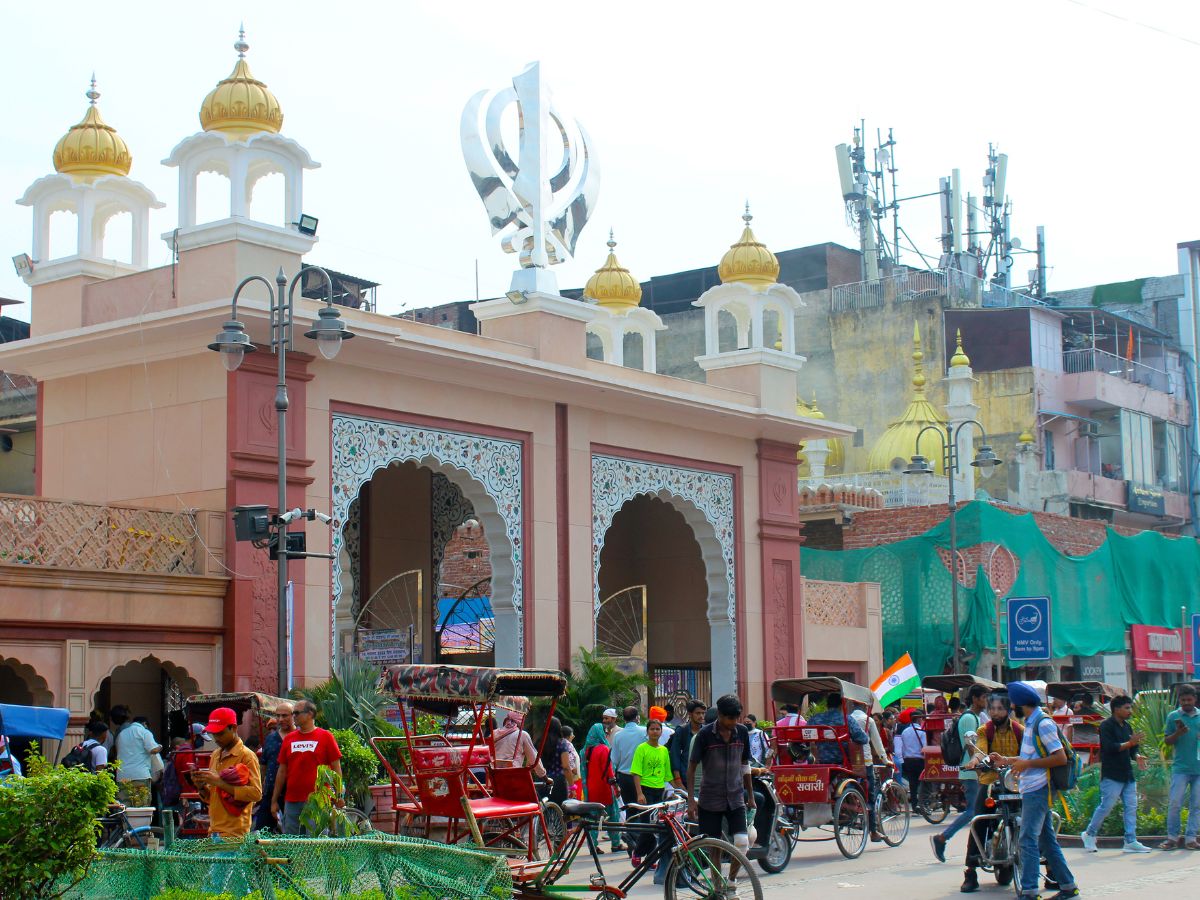
HISTORIC STRONGHOLD: Gurudwara Sis Ganj is a prominent place of worship for Sikhs / All Photos: Faisal Malik
India has a vast history of brotherhood during the struggle of freedom. All communities fought together in that battle to make India independent.
After 75 years, the legacy of communal harmony and brotherhood can still be seen in the country.
The national capital has been serving the cause of secularism since the Mughal era, which is visible in its syncretic culture, heritage monuments and festivals. The strands are inseparable.
If the Jama Masjid, the iconic mosque of Old Delhi, is built of red sandstone and white marble, and has a striped dome, the Digambar Jain temple in Chandni Chowk has a similar style. It was only in the 20th century that additions were made to the temple, in the form of towering red shikhars.
The gilded bulbous dome of Gurudwara Sis Ganj is very similar to the domes of the 18th century Sunehri Masjid next to it, proving that each faith is not so different from the other and that their places of worship can exist side by side.
Ask Abdul Kareem, living in Ballimaran, and he says brotherhood is in the veins of people of Delhi. He states that the communal harmony that prevails in the city is why it is called ‘Dilwalon ki Nagri’ (a city of large-hearted people) “We celebrate all the festivals together. Whether it is Eid, Diwali or any festival, we join each other in festivities,” he says.
This sentiment is endorsed by bangle seller Yogesh, who says followers of all religions have been living together for decades. “As soon as August comes, we get busy in the preparations for Independence Day. Together, Hindus and Muslims celebrate this day with gusto and enthusiasm”, he says.
That way, the Chandni Chowk area has a unique ethos. “On one side, the priest performs bhajans in the temple; on the other, you can hear kirtan in the gurdwara and azan from the mosque. Prayers are held at the church as all signs of secularism come together,” says Abdul Kareem.
In the middle of hatred and communal violence, the country has a treasure of brotherhood and communal harmony of secularism which makes India a secular nation. In true sense, it is called the largest democratic secular country in the world.
For more stories that cover the ongoings of Delhi NCR, follow us on:
Instagram: instagram.com/thepatriot_in/
Twitter: twitter.com/Patriot_Delhi
Facebook: facebook.com/Thepatriotnewsindia
Delhi Police will deploy over 15,000 personnel across the city during Holi, with intensified patrols…
A Delhi canteen owner was allegedly murdered and dismembered by his friend and accomplices for…
A 21-year-old man has been arrested for allegedly stabbing two teenage brothers at a Haiderpur…
Droupadi Murmu launches Pink National Common Mobility Card, free LPG cylinder benefit, and two financial…
Court says detention unnecessary, cites liberty concerns in AI summit protest case
Indian airlines cancelled 760 overseas flights in the last two days owing to the escalating…